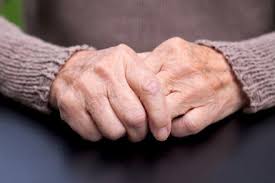A few years ago we were told that something as basic as drinking coffee conferred benefits upon those with Parkinson's disease. But after closer inspection and expanded study, that conclusion has been withdrawn.
Specifically, Canadian researchers determined that caffeine does not help control movement symptoms for Parkinson's suffers, as a previous study suggested in 2012.
The new research took note of the small number of participants and the brevity of the previous study, which lasted just six weeks. When they enlarged the pool of subjects and lengthened the timeline, the benefits were no longer apparent. The new belief is that if involuntary movements were somewhat contained, they were not long lasting.
"While our previous study showed possible improvement in symptoms, that study was shorter, so it's possible that caffeine may have a short-term benefit that quickly dissipates," said Ronald Postuma MD, MSc, at McGill University in Montreal. "Regardless, our core finding is that caffeine cannot be recommended as therapy for movement symptoms of Parkinson's disease."
The new study, titled "Caffeine as symptomatic treatment for Parkinson disease, A randomized trial," was published Wednesday online in the journal Neurology, the medical journal of the American Academy of Neurology, of which Dr. Postuma is a member.
The 2012 study was only six weeks long; the new study was expanded to six to 18 months, following 121 participants diagnosed with Parkinson's for an average of four years. Sixty received caffeine capsules, while the other half (61) were given placebos. Those who took caffeine received the equivalent of three cups of coffee per day, by consuming one 200-milligram capsule in the morning and another in the afternoon. And their intake was gradual, scaling up from two placebos daily in Week 1 to two 200-mg capsules by Week 9.
 For caffeine consumers, researchers found no appreciable improvement in controlling movement symptoms, as well as no quality of life improvements, two major factors that convinced researchers to halt the study.
For caffeine consumers, researchers found no appreciable improvement in controlling movement symptoms, as well as no quality of life improvements, two major factors that convinced researchers to halt the study.
"Terminated early for lack of efficacy, the study only enrolled approximately half the intended total and completed only 18 months of follow-up," said Charles B. Hall, PhD, of Albert Einstein College of Medicine in New York, whose comment was included alongside the published paper. "Researchers can now focus on more promising intervention targets and clinicians now know that any effects of caffeine are likely small and not better than placebo. Hopefully future studies will find more effective interventions.
"It is also important," Dr. Hall added, "that the disappointing findings like these be shared so new research can focus on other possible treatments instead."




